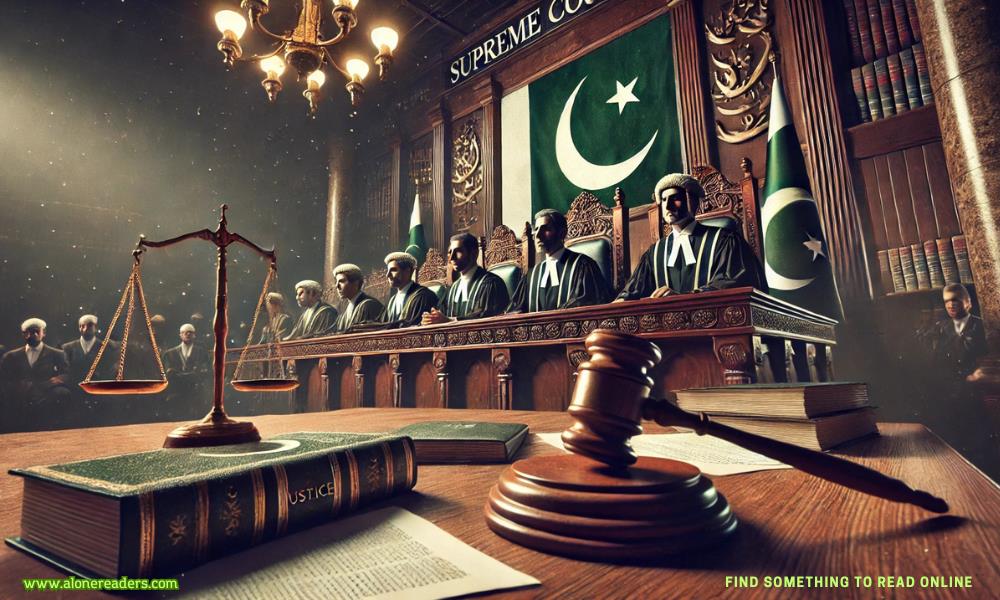
In 2017, Pakistan witnessed a watershed moment in its political and judicial history when the Supreme Court disqualified Nawaz Sharif, the country's sitting Prime Minister, from holding office. This decision stemmed from allegations of corruption brought to light during the Panama Papers leak, which implicated Sharif and his family in owning offshore assets. The ruling sparked widespread debate, raising questions about the judiciary's role in politics, the limits of its authority, and the balance of power among Pakistan's institutions. Was this decision an example of judicial overreach, or was it a necessary action to uphold the principles of justice and accountability?
The Panama Papers scandal, an unprecedented leak of financial documents, exposed the hidden wealth of numerous global elites, including Pakistan's ruling family. Nawaz Sharif and his children were alleged to own expensive properties in London, purchased through offshore companies. These revelations raised suspicions about how these assets were acquired and whether they were declared in Sharif's official statements. The opposition, led by Imran Khan and his Pakistan Tehreek-e-Insaf (PTI) party, filed a petition in the Supreme Court demanding an investigation into Sharif's financial dealings. This marked the beginning of a high-stakes legal battle that culminated in the historic verdict.
The Supreme Court's ruling hinged on Article 62(1)(f) of the Pakistani Constitution, which requires parliamentarians to be "sadiq and ameen" (truthful and honest). The court found Nawaz Sharif guilty of concealing assets in his nomination papers, a violation of this clause. Consequently, he was deemed ineligible to continue as Prime Minister. Supporters of the verdict hailed it as a victory for accountability and a step towards eradicating corruption from Pakistan's political landscape. They argued that no individual, regardless of their position, should be above the law and that the judiciary had fulfilled its duty by holding a powerful leader accountable.
However, the decision was not without its critics. Many questioned the judiciary's interpretation of Article 62(1)(f), a provision criticized for its vague and subjective nature. They argued that the clause, introduced during the military dictatorship of General Zia-ul-Haq, was a relic of an era when morality tests were used to exclude opponents from politics. Critics contended that its application in this case set a dangerous precedent, enabling judicial interference in the democratic process and potentially undermining the will of the electorate. They viewed the verdict as an overreach, blurring the line between judicial oversight and active participation in politics.
The aftermath of the ruling further fueled this debate. Nawaz Sharif and his party, the Pakistan Muslim League-Nawaz (PML-N), portrayed the disqualification as a politically motivated move orchestrated by his opponents and facilitated by the judiciary. Sharif embarked on a campaign to challenge what he called the "invisible forces" that undermined democracy in Pakistan, accusing the judiciary of bias and overstepping its bounds. This narrative resonated with many of his supporters, who believed that the judiciary's actions were part of a larger pattern of institutional imbalance in the country.
At the same time, proponents of the verdict pointed to Pakistan's history of corruption and the challenges of holding public officials accountable. They argued that the judiciary had a moral and legal obligation to act in the face of overwhelming evidence of wrongdoing. In a country where corruption scandals often fade into obscurity without consequences, the Supreme Court's decision was seen as a rare example of justice being served. For these advocates, the ruling was less about judicial overreach and more about the judiciary stepping in to address systemic issues that other institutions had failed to confront.
The broader implications of the disqualification extended beyond Nawaz Sharif and his political future. The verdict highlighted the complex relationship between Pakistan's judiciary, military, and political institutions, which have often operated in tension with one another. Critics of the judiciary's role in Sharif's disqualification argued that the decision reinforced perceptions of a judiciary aligned with non-democratic forces, particularly the military, which has a long history of influencing Pakistan's politics. This perception, they warned, could weaken public trust in the judiciary as an impartial arbiter of justice.
Despite the controversies surrounding the ruling, it undeniably served as a catalyst for greater public discourse on governance, accountability, and the role of the judiciary. It also underscored the importance of institutional reform to ensure that mechanisms for holding leaders accountable are fair, transparent, and free from political influence. Whether one views the disqualification as judicial overreach or a necessary action, it marked a turning point in Pakistan's political and judicial evolution, forcing the nation to grapple with questions about the limits of power and the principles of democracy.
In the years following the ruling, Nawaz Sharif's political career faced significant challenges, yet his influence remained palpable within the PML-N and among his supporters. The long-term impact of the Supreme Court's decision on Pakistan's political landscape and institutional integrity continues to be debated. For many, it serves as a reminder of the delicate balance required to uphold the rule of law while respecting democratic norms—a balance that remains elusive in Pakistan's tumultuous political environment.